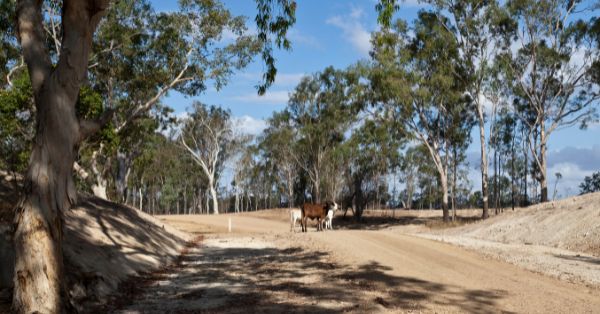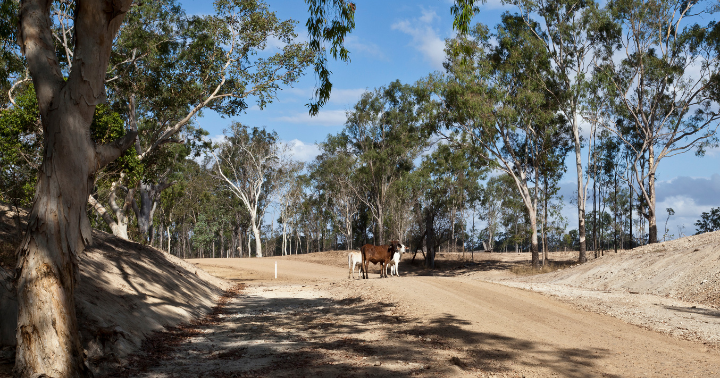
Enterprise Legal Explains: What is a 'Going Concern' in Relation to Property?
- Peta Gray & Rheannon Simmonds
When selling commercial, industrial or rural property, one of the most important considerations is whether goods and services tax (GST) applies to the sale. As a starting point, in most cases, GST is charged at 10% on the sale price. However, you may have heard of an exception known as the ‘going concern’ exemption, which can make the transaction GST-free if certain conditions are met.
What is a 'Going Concern'?
A property sale can be considered a 'going concern' when the business or operations related to the property are sold as part of an ongoing operation. Essentially, the property must continue to function in the same way after the sale, ensuring no disruption to tenants, lease agreements, or other key operational elements.
The easiest way to think about how your property is a ‘business’, is to think of it as being used for the ‘business of leasing’.
Key Requirements for the Going Concern Exemption
To qualify for this GST exemption, both the seller and buyer must meet specific conditions, including:
- Ongoing Business Operations: The property must be part of an active business operation at the time of sale (remember that ‘business of leasing’ that we talked about earlier). For example, a commercial office building with current tenants under lease agreements would meet this criterion, as would a lease between the owner of the property and a related-entity (being a different company or Trust) who leases the property to use as their business premises.
- All Assets Supplied: The seller must transfer all assets necessary for the business to continue without interruption. In a property context, this would include lease agreements, maintenance contracts, or any other property-related operations.
- Continuity: The buyer must intend to carry on the same type of operation after the sale. For example, if it’s a leased property, the new owner must continue leasing it out under the existing arrangements. If you terminate the lease at settlement, it won’t meet the requirements.
- Both Parties Registered for GST: Both the seller and the buyer must be registered for GST at the time of the transaction.
- Agreement in Writing: Finally, both parties must explicitly agree in writing that the sale is of a ‘going concern,’ ensuring clarity and compliance.
GST Treatment of Rural Farming Properties
The sale of rural farming properties also has specific GST considerations. In many cases, the sale of a rural property that is used primarily for farming can be GST-free if it meets the following conditions:
- Business of Farming Continues: Like the sale of a commercial property, the farming property must be sold as an ongoing operation. This means that any agricultural activities, such as crop production or livestock farming, should continue uninterrupted after the sale. The parties will need to make certain statements to confirm this.
- Land Used for Farming: The property must be predominantly used for farming purposes. This includes properties used for activities such as growing crops, grazing livestock, or other agricultural production.
- All Necessary Items for Farming Supplied: Similar to the commercial 'going concern' exemption, all assets required to continue the farming operation, including machinery, livestock, or infrastructure, must be transferred to the buyer.
- GST Registration: Both the seller and buyer must be registered for GST if the sale is part of an ongoing enterprise. However, if the property is simply being sold as land (without the business of farming continuing), it may not be GST-free and could attract GST at the usual rate.
Benefits of a GST-Free Going Concern Sale
By structuring a sale as a GST-free going concern, both parties can enjoy significant benefits:
- No GST Liability for the Buyer: The buyer does not have to pay GST on the purchase price, which can result in improved cashflow and potential savings.
- Competitive Pricing for Sellers: Sellers may find it easier to negotiate a higher sale price, as the buyer does not need to account for the additional GST cost in their purchase budget.
- Reduced Stamp (Transfer) Duty: In Queensland, transfer duty (also known as stamp duty) is payable on the GST-inclusive purchase price, which means more stamp duty is payable by the buyer if the sale is not GST-free.
Need Expert Guidance?
Whether you're selling a commercial or rural property or purchasing one, it’s essential to get the right legal and accounting advice to ensure the sale is structured correctly and that both parties benefit from any available GST exemptions. The team at Enterprise Legal can work with your accounts to help you navigate the complexities of GST laws and ensure your transaction proceeds smoothly.









